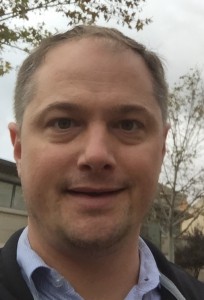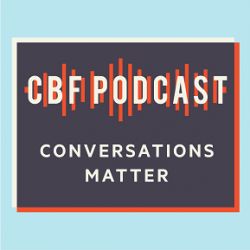By Ryan Clark,
A few weeks ago I checked into my hotel room in San Antonio and I did it again. I only had a few minutes before we were meeting for dinner downstairs but I did it anyway. I found the printed hotel list of TV channels.

This list is always wrong, by the way. I end up having to flip through every channel to find what I’m looking for. I’m just in time even though I only have a few minutes to spare. I sit on the edge of the bed with my face aglow with the blue television light: This is CNN.
Two political operatives are being asked questions by the interviewer. They basically ignore the question and give a sickening stylized and dizzying spin of their candidate’s position. Then one operative calls the other a liar. Then one announces he didn’t interrupt the other. The interviewer feebly tries to redirect and then it’s time to go down for dinner.
I am remembering visiting my grandparents when I was a teen. They were always watching CNN. Twenty-four hour news was innovative then and in their home it felt like daily schedule was a simple formula of coffee, cigarettes, and CNN. It didn’t occur to me that the glowing images of the United States bombing Iraq was just as much an addiction as the nicotine and caffeine.
I don’t have cable at home. I haven’t had it for over 13 years but I have traveled a good bit for work and I always fail to resist the temptation to gorge on political pornography when I’ve had access. It seems impossible at times to stop myself. I’ve wondered why through the years. It is evident now to me that cable news is specifically designed to titillate and surreptitiously drain serotonin from my prefrontal cortex. I lose any sense of political reality and my democracy becomes a montage of impossible angles highlighting ridiculous positions.
I’m at dinner in San Antonio again. I’m trying to pay attention to the conversation but I keep unlocking my phone and scrolling articles on Facebook. I should be engaged with my new friends but I’m held captive by what will be posted next. In my mind, I’m rehearsing arguments I would offer if I were debating the political operatives on TV.
Addictions distort our outlook into normalizing calculated and degenerative failure at fact and logic-based conversation. No matter your pleasure, left or right, you can completely ignore reality [fact checkers], because our amygdala is being stimulated by the illusion of a politically pure promised land. One, we all know deep down, does not and will not exist.
We all woke up after the election with a nasty hangover. Some of us were pleasantly surprised we were alive after that last bender.
The only reason any of us felt these ways is because the political fantasy to which we’d all become habituated is over. We are getting exactly what we deserve. “We are living into the consequences of unbridled and untreated addiction…consequences of living the 24 hour news cycle which:
- Distorts our perspective on reality
- Creates unrealistic expectations of political leaders
- Leaves us largely uniformed about what real politics looks like (or should look like)
- Leaves us depressed, agitated, and regretful.
- Leaves us with a sense of loss of control, both over our lives and those we love, and
- Drains us of the hope to effect positive change in the world.
So I’m wondering what it will take for us to regain healthy boundaries and sweet curiosity about what makes our country great. Will we laugh together again? Will we always see friends and acquaintances as a piece of political meat, sizing each other up at parties with probing questions to see if the person we just met sleeps between the same political sheets?
Maybe there’s a person out there who can write internet firewall or browser feature that filters out political content and notifies my spouse if I try to click on anything political. Maybe there’s a patch I can wear on my arm. Maybe my therapist will help me come up with a treatment plan.
In my home, we’ve committed to turn the volume down in our house. We’re listening to more Hamilton and Frozen soundtracks and less NPR (sorry Scott Horsley). We’ve placed our phones in other rooms when we’re not talking on it. We’re replacing our political banter with affectionate lyrics that draw us together. Recently, my daughter asked me where my phone was. I told her I didn’t know. She didn’t believe me. It frightened me when I realized I wasn’t lying to her. Then I calmed down and went back to playing Legos.
My addiction isn’t broken. I really, really want to watch the late-night comedians right this minute. I want troll my friends on Facebook and post Snopes articles and broadly cast the seeds my self-righteousness. But I’ve learned my lesson as I am sure I will again. And again.
I’m sitting here thinking about how I’ll start to re-engage in political discourse. I am an ally of those who need me to be engaged and I need them to keep me grounded in reality. For me, complete radio silence is not an option. I do think it means I’ll be more focused on my neighborhood for a season or two. I think I’ll keep my conversations less Facebook to Facebook and more face to face. And most of all work on real relationships and rehearse making friends instead of arguments.
Ryan Clark is Church Engagement Manager at the Cooperative Baptist Fellowship. He leads at the intersection of the missions and the local church. He and his wife Cindy have two children, two dogs, three chickens and live in Decatur, Georgia.












